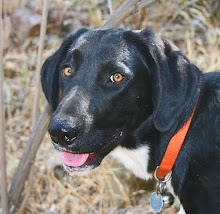 |
| Looking toward Sierra Valley and its wetlands. |
Once again good readers, I will be giving the camera trapping workshop at San Francisco State University's Sierra Nevada Field Campus.
This will be the third course, and I've been making incremental improvements in the presentations and activities as a result of growing familiarity with the location and input from participants.
We have definitely nailed down the whereabouts of several additional species of small mammals not far from the campus, but we'll also range into surrounding areas to cast the camera trap net more widely.
As in the past, I'll set several cameras in the field a month before the workshop, and we'll gather them and view the photos during the week.
Be sure to bring your laptop for downloading and viewing photos, and a GPS, if you have one. I'll provide you with camera trap data notebooks.
Basically, we'll cam trap daily and move through the subject matter using powerpoint presentations and discussions.
Click the Sierra Nevada Field Campus website for information about the field campus and its course offerings, including Photographing Wildlife with Camera Traps.
Registration materials are available at the website.
I know that regular readers of CTC are well aware of the recreational and educational rewards of camera trapping, not to mention the adventure and sheer fun of it all, so read on if you want to know what's planned.
 |
| Fording the Yuba on the way to Deadman Lake |
CAMERA TRAPPING WORKSHOP SCHEDULE
SIERRA NEVADA FIELD CAMPUS, SIERRA COUNTY, CA
July 17-22, 2011
Sunday, July 17- Arrive: noon through late afternoon.
- Dinner: 6:00 PM.
- Evening: Class introductions, workshop goals and work plan, participants voice special interests.
- Power Point presentation: Camera Trap Discoveries
- Breakfast: 7:00AM (make your own bag lunch)
- 8:30 AM: Power Point presentation: Camera trap structure and function and Camera Trap "Set Theory".
- Other Topics covered: Camera attachments and mounts (low to high tech solutions).
- Activity (mid-morning): Hands-on instruction in pre-visualizing images and anticipating animal behavior. Subjects = golden-mantled ground squirrels, shadow chipmunks, chickarees, mountain beavers, pikas, bushy-tailed wood rats): Sets = hollow logs, burrow entrances, and natural feeding stations--e.g., seed and cone middens
- Lunch: in field or in camp
- Afternoon: Collect pre-set cams in the field (car pool to site, and a short hike in) or stay in camp with your own cameras. Return to field campus, download photos, compare results from morning sets.
- Dinner: 6:00 PM
- Power Point presentation/discussion: Use of Attractants (windfalls, water, scent/visual/sound lures and baits; legal restrictions).
- Breakfast: 7:00AM (make your own bag lunch)
- 8:30 AM, Powerpoint Presentation: Animal Psych for Camera Trappers (species differences in behavior and sensory perception).
- Activity: Set cams in field (car pool to site in Sierra Valley).
- Lunch: in field
- Afternoon: Return to field campus, check cams near camp, download photos, compare results.
- Dinner: 6:00 PM
- Power Point presentation/discussion: Old timey Camera Trap Luminaries
- Additional activity: Home-made portable endoscope (burrow and cavity video cam)
Wednesday, July 20
- Breakfast: 7:00AM (make your own bag lunch)
- 8:30 AM: Topic: camera trapping databases (inventory of sets, spreadsheet of camera trapping results); image database software; digital darkroom software, GPS mapping software.
- Activity (mid morning): Hike to Deadman Lake and scree (optional, but a chance to see pikas).
- Lunch: in field (or in camp).
- Afternoon: Return to field campus, download photos, compare results from morning camp sets.
- Dinner: 6:00 PM
- Power Point presentation/discussion: How to be in the right place at the right time.
- After sunset: Flying squirrels: observations and photography (tentative, it depends on a good neighbor).
Thursday, July 21
- Breakfast: 7:00AM (make your own bag lunch)
- 8:30 AM: Topic: Making your own: General guidelines and links for hacking cameras, i.e., “homebrew” trail cameras.
- Activity (mid morning): Collect cams from outlying sites (talus slope, ravine springs, mountain beaver burrows).
- Lunch: in field
- Afternoon: Return to field campus, download photos, compare results.
- Dinner: 6:00 PM
- Power Point presentation/discussion: Wildlife Surveys using Camera Traps (scientific applications)
- General discussion: Topics of class choice; hand out evaluation forms (questionnaires); copy and share photos taken during course.
Friday, July 22
- Breakfast: 7:00AM (make your own bag lunch)
- Activity: (1) collect cams and pack, (2) return evaluations (3) class photo
- Farewell and Departure
 |
| Viewing photos during last year's workshop |

1 comment:
Would be fun!
Codge, why don't you come east and do one of these? I can set you up with a location...
What's your fee?
Post a Comment